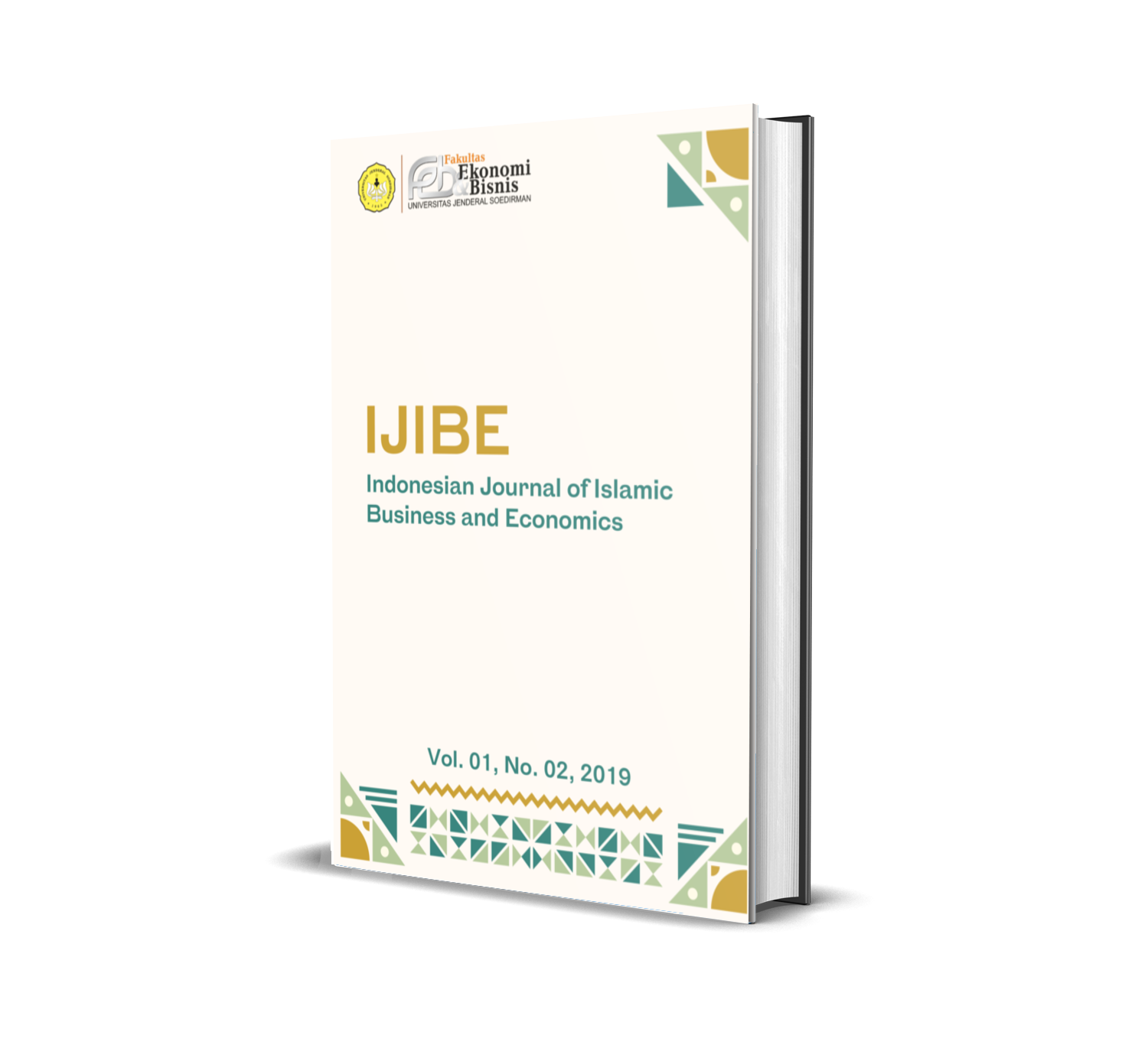THE EFFECTIVENESS OF THE COLLECTION OF PROFESSION ZAKAT AND ITS ACCOUNTABILITY ON BAZNAS (CASE STUDY IN LOCAL GOVERNMENT IN TASIKMALAYA REGENCY)
Main Article Content
Abstract
Profession Zakat through the payroll system is one of the collection procedures that are expected to help increase zakat acceptance in general. Badan Amil Zakat Nasional (BAZNAS) Tasikmalaya Regency is an official government institution that is trusted to manage and distribute zakat and it is expected to be an accountable institution. Using qualitative descriptive method to illustrate the true depiction and case study approach to explain specifically about the phenomena of the effectiveness of the collection of profession zakat and accountability of BAZNAS Tasikmalaya Regency. The results of this study indicate that the procedure of collecting zakat through the payroll system has been effective, seen from the achievement of profession zakat funds per year and also the calculation of Collection Ratio based on Zakat Core Principles. The financial statements made by BAZNAS Tasikmalaya Regency still not perfect, there are several components that have not been prepared so that the financial statement of BAZNAS Tasikmalaya Regency has not yet in accordance to Shari’a Financial Accounting Standard (SAK Syari’ah) No. 109 "Accounting for Zakat and Infaq/Sadaqah".
Article Details

This work is licensed under a Creative Commons Attribution-NonCommercial-ShareAlike 4.0 International License.
Authors who publish with this journal agree to the following terms:
- Authors retain copyright and grant the journal right of first publication with the work simultaneously licensed under a Creative Commons Attribution License that allows others to share the work with an acknowledgement of the work's authorship and initial publication in this journal.
- Authors are able to enter into separate, additional contractual arrangements for the non-exclusive distribution of the journal's published version of the work (e.g., post it to an institutional repository or publish it in a book), with an acknowledgement of its initial publication in this journal.
- Authors are permitted and encouraged to post their work online (e.g., in institutional repositories or on their website) prior to and during the submission process, as it can lead to productive exchanges, as well as earlier and greater citation of published work (See The Effect of Open Access).

